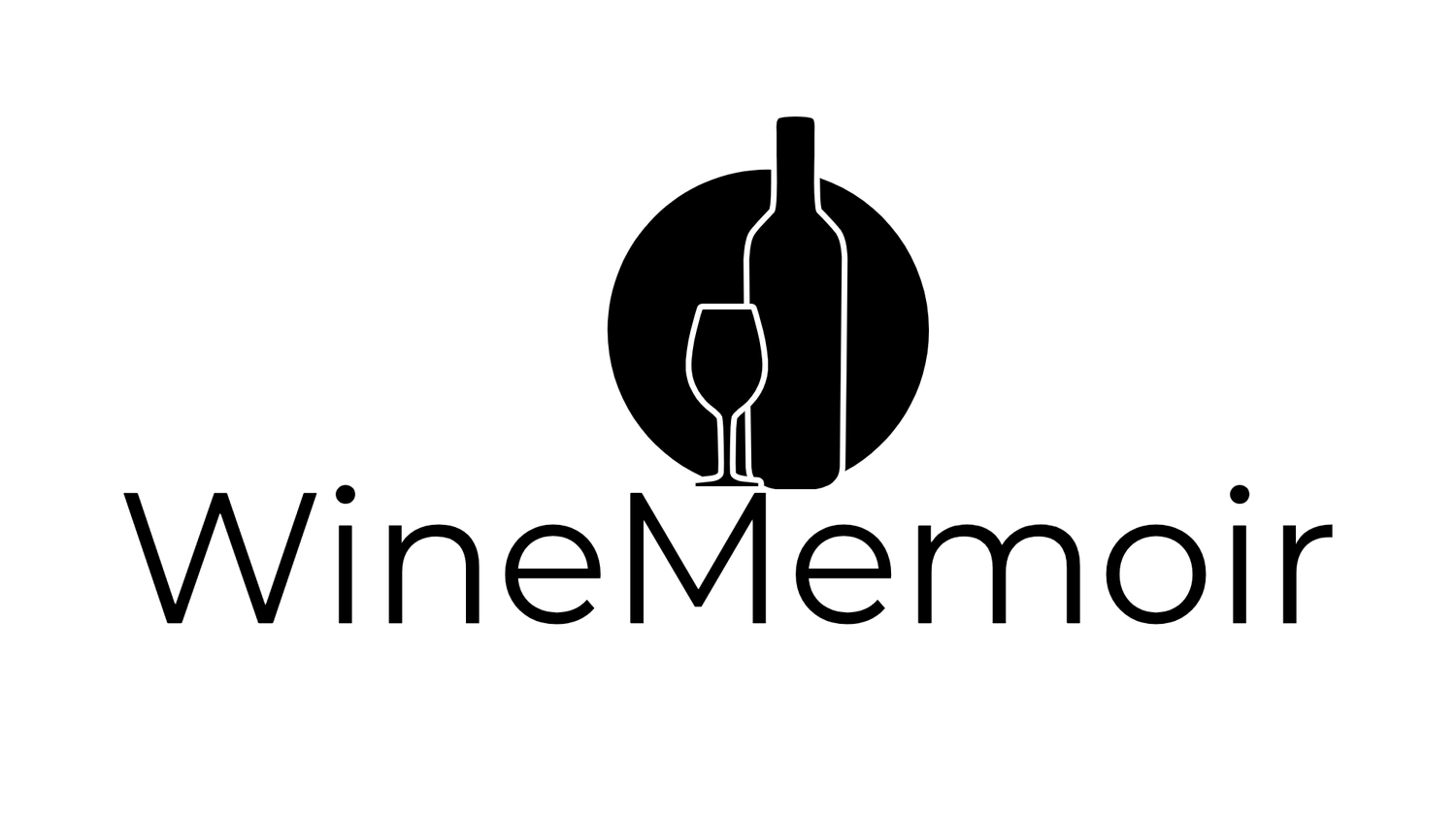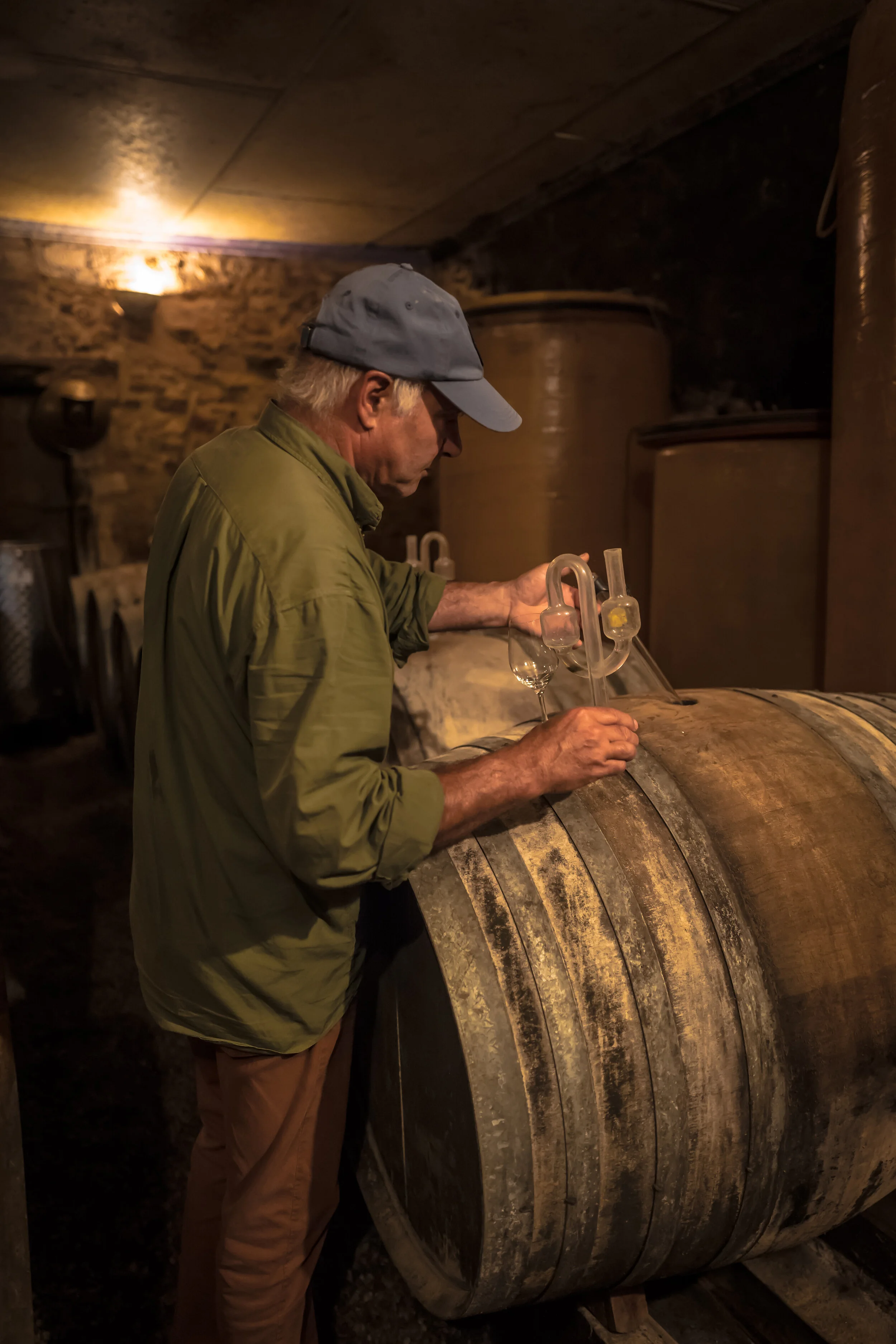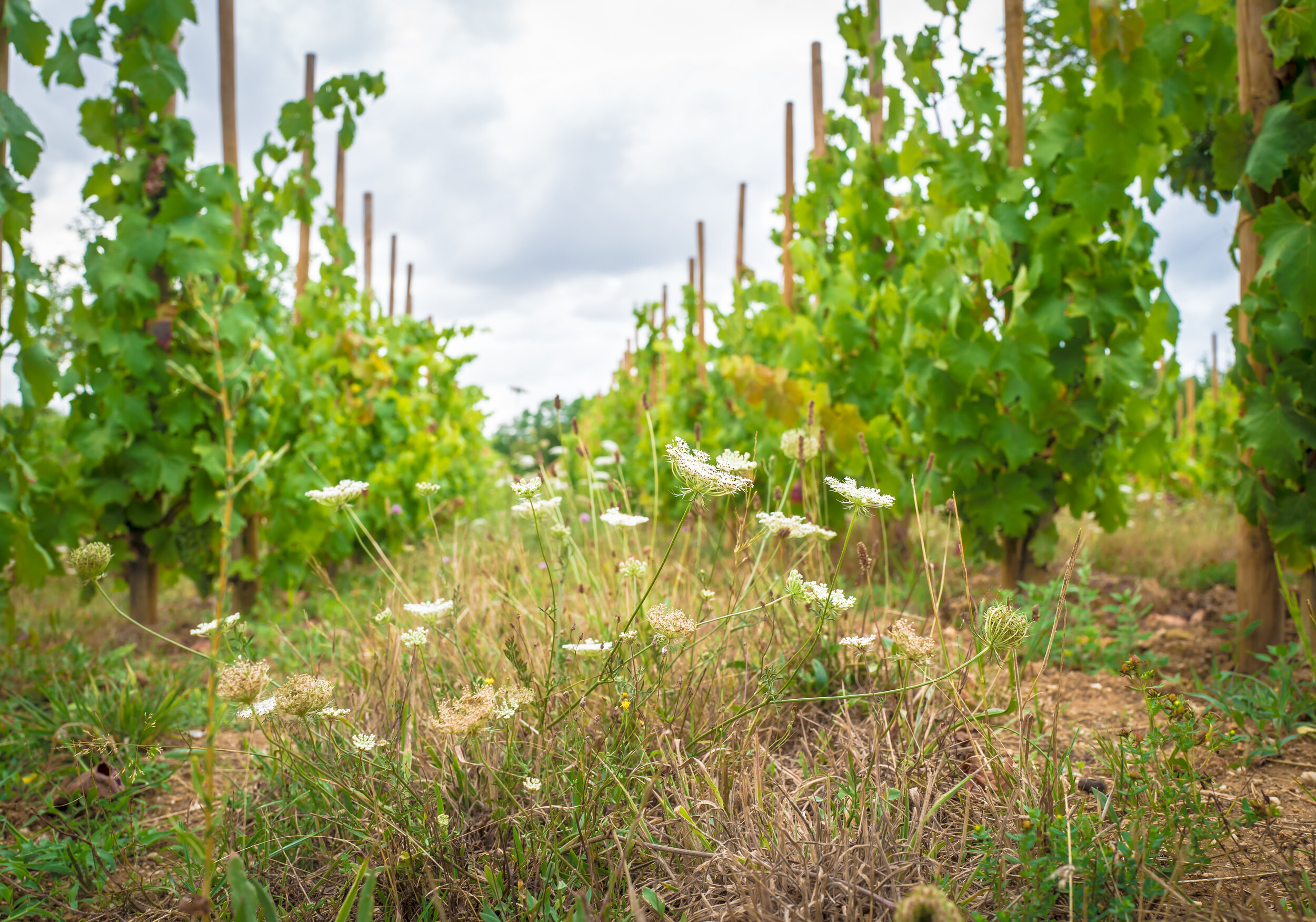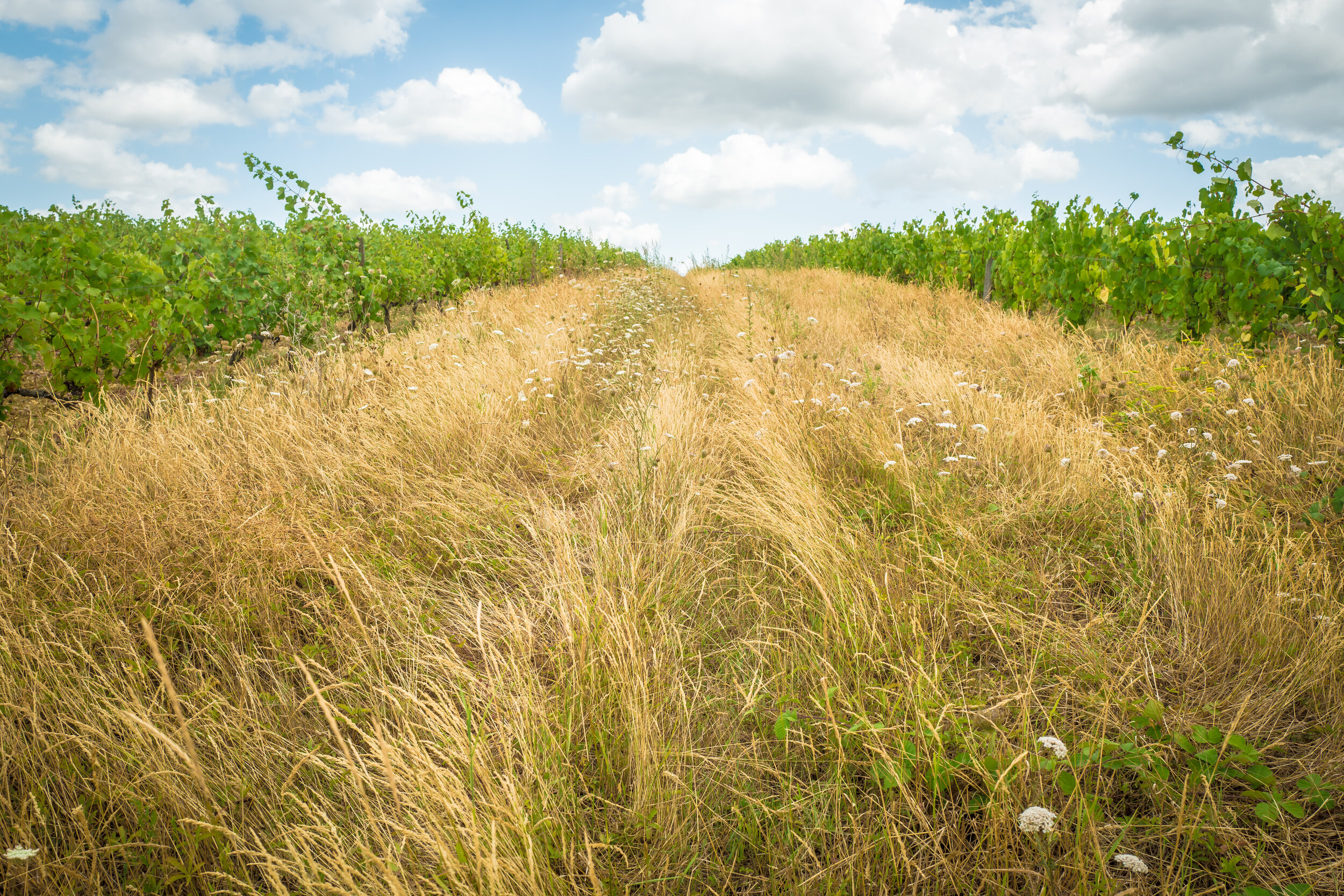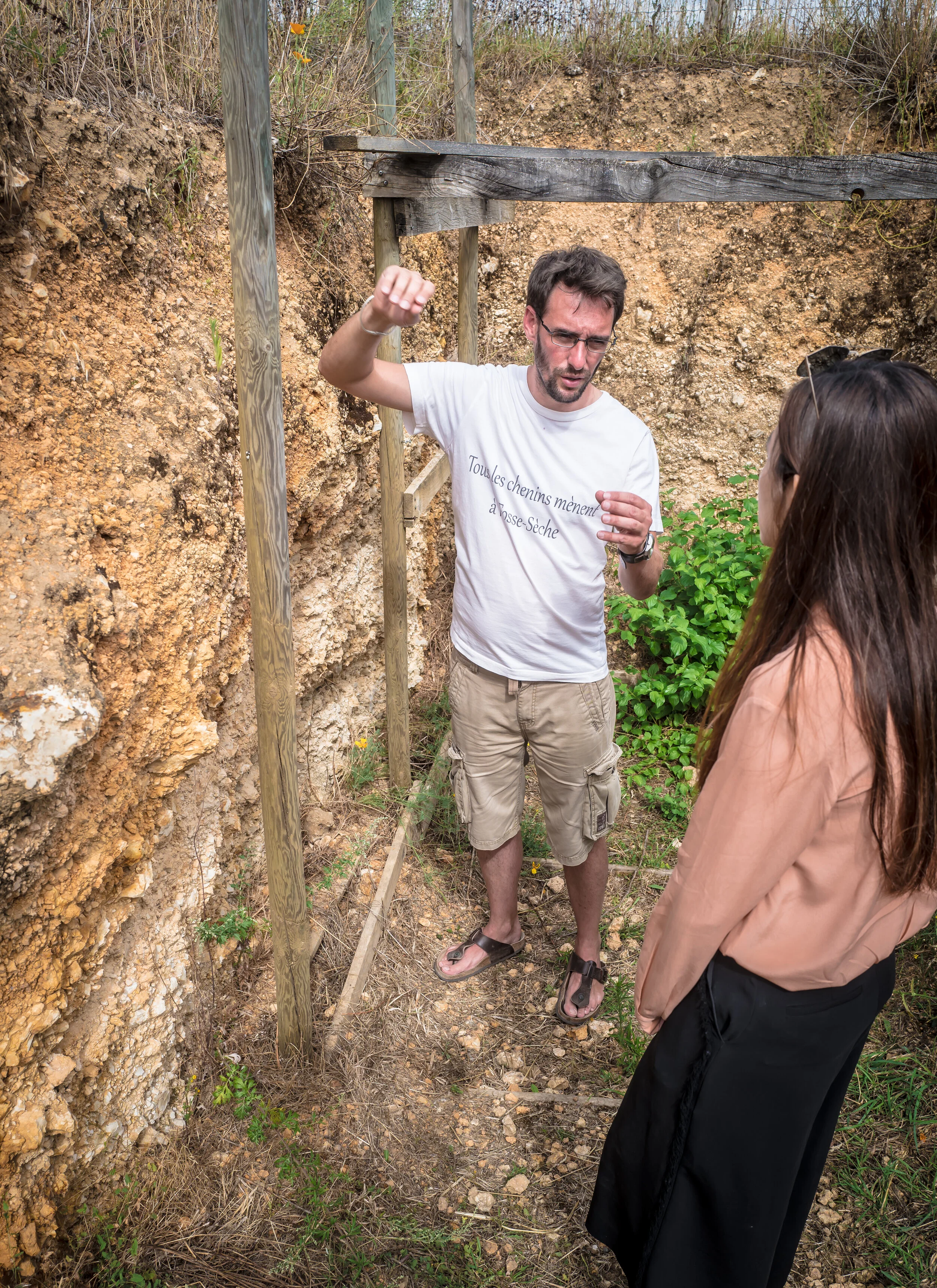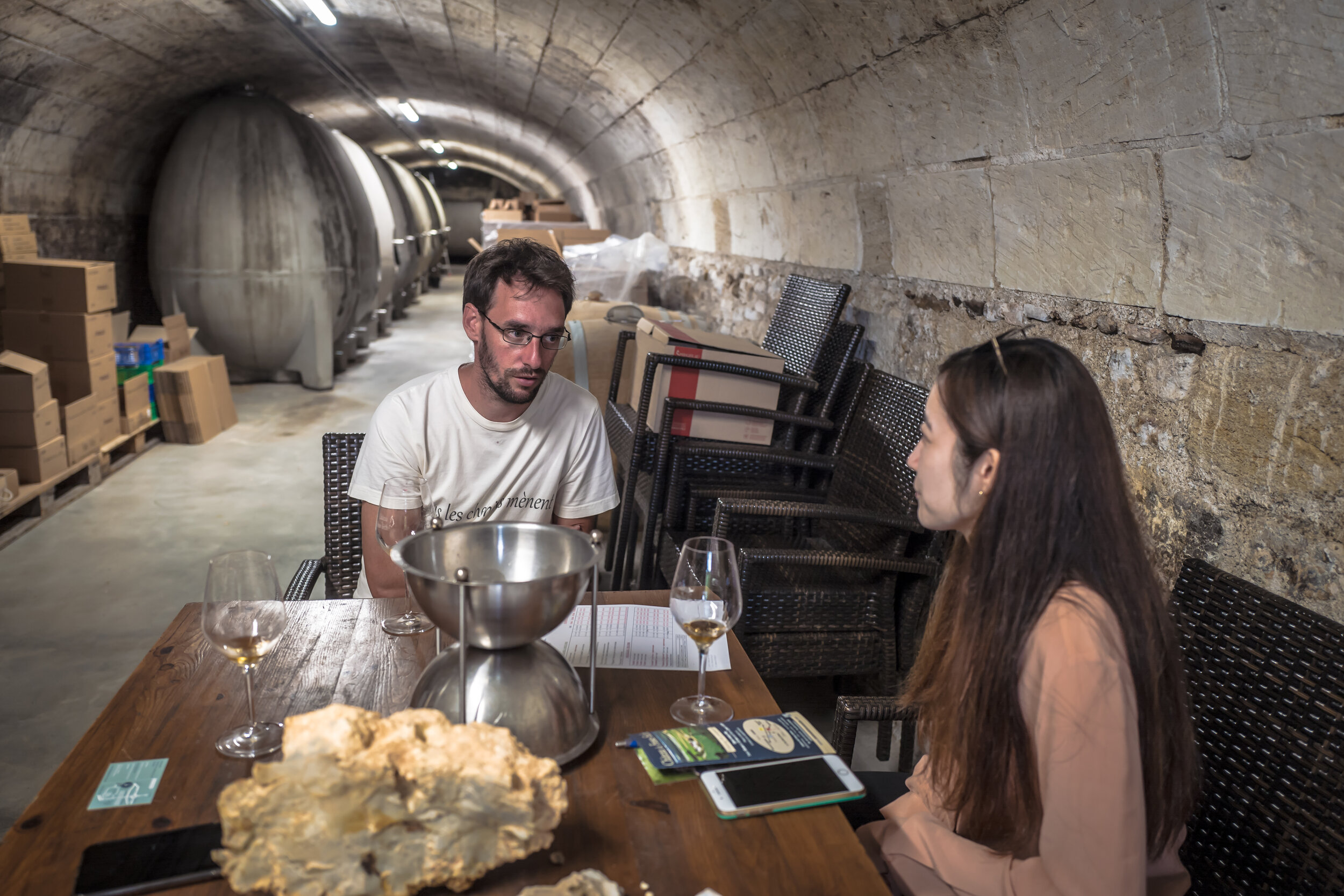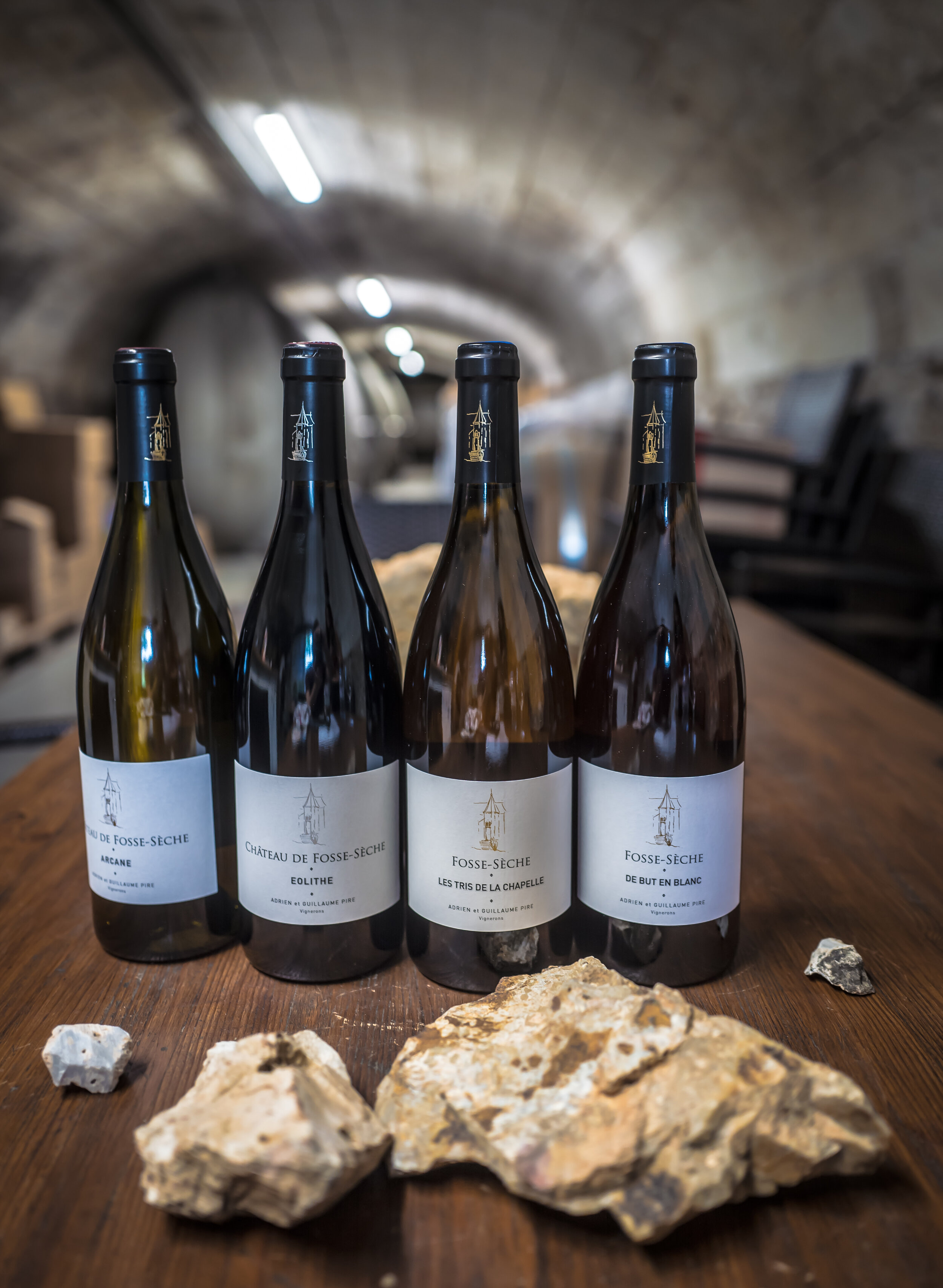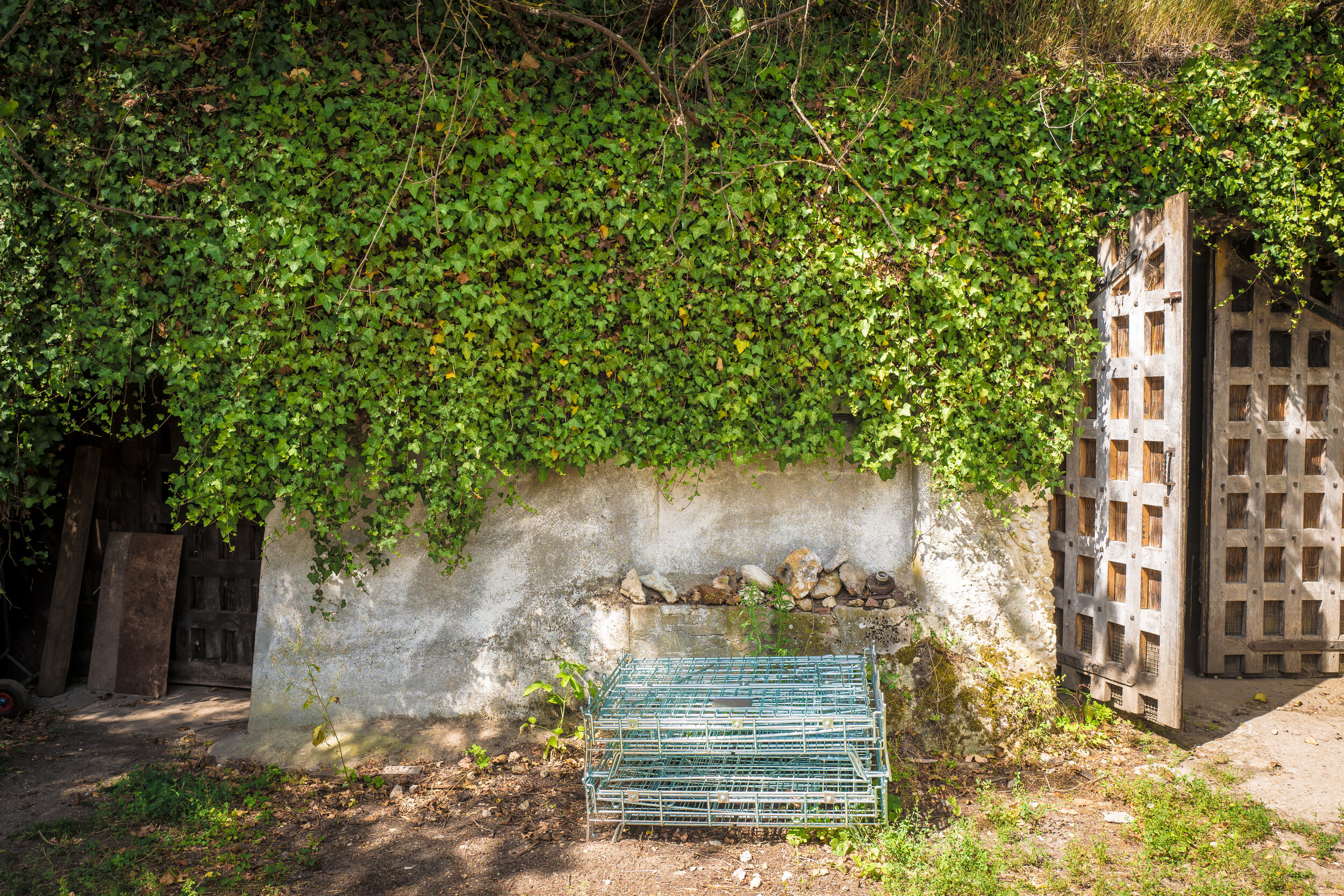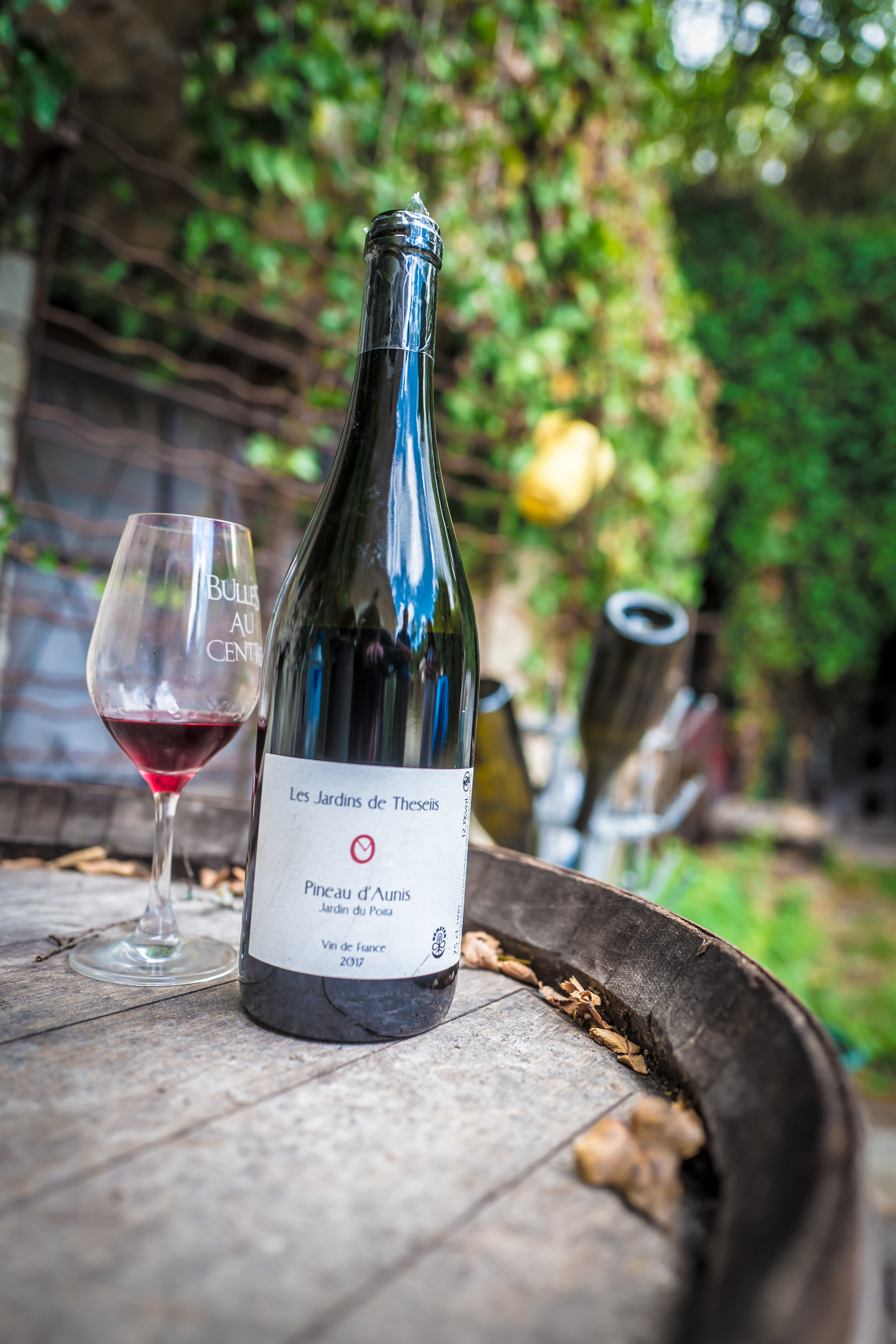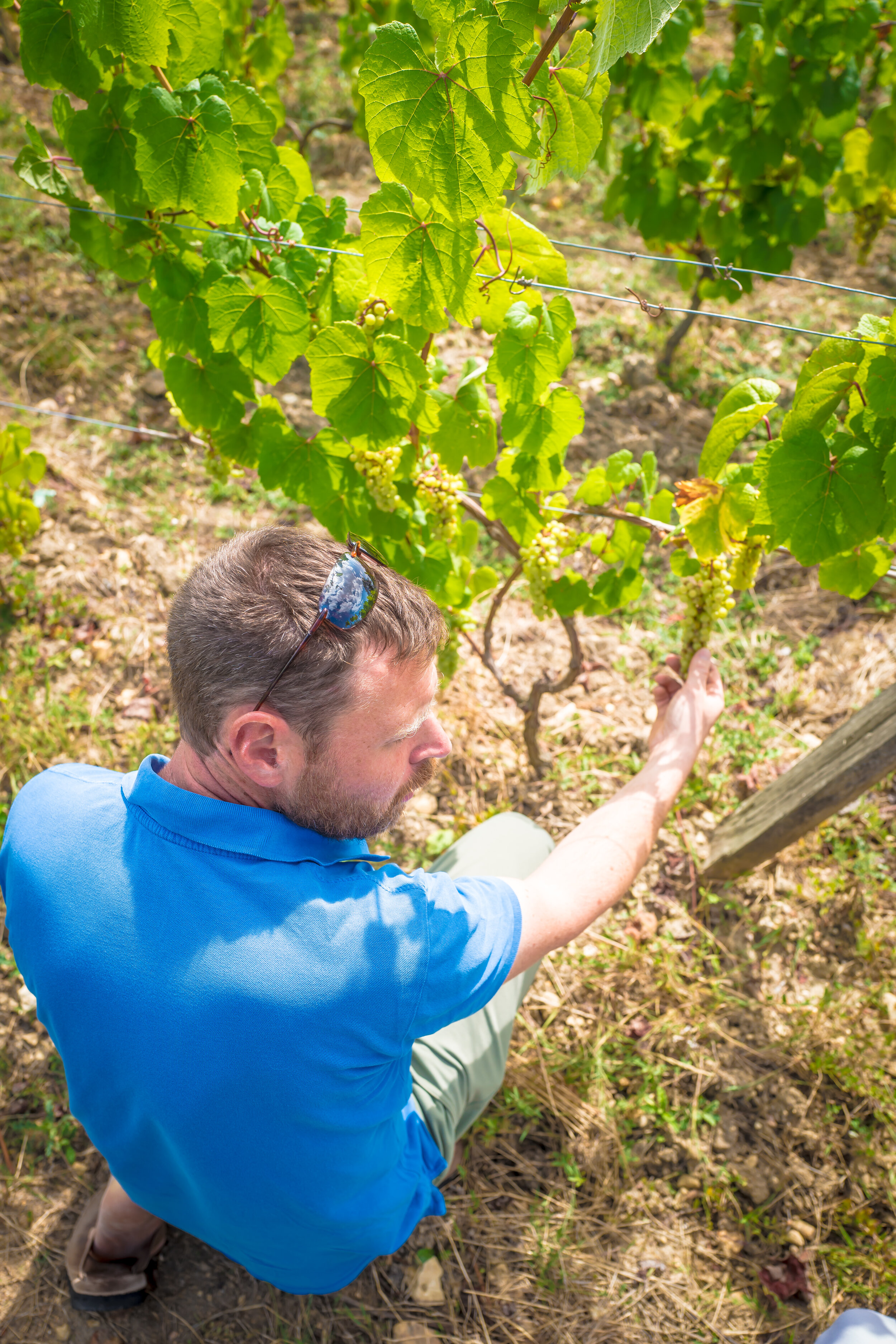Three Utopians in the Loire Valley
/the loire valley
The Loire Valley has been on my list to visit long before I learnt about Sancerre or Chinon. Its popularity with aristocracy has left the lush countryside sprinkled with majestic Renaissance-era chateaux. Walking in the ancient cities and medieval towns feels like a fairy tale come to life. But of course, this time I went for the wines. I’ve visited many wine regions, while each has its own uniqueness and essence, this trip was the most emotional one among them all.
A two-hour drive from Paris - quite pleasant (and empty) if you come in the summer as there are thousands of sunflowers waving in the fields - got us here in the wine country. I’m not planning to bore you with all the basics about Loire, as there are enough articles praising the beautiful Vouvray and Sancerre. Today, let’s focus on three idealists here in Val de Loire.
Mark Angeli - An Advocate, Sponsor, and Mentor
Ferme de la Sansonniere - Pure
Mark Angeli taking samples from barrels
Originally from Provence, Mark Angeli came to Anjou in 1989, purchased his current vineyard aiming to change the notoriety of Anjou. He has a chemistry background, worked as a stonemasonry for some years, yet he’s always been intrigued by wine. He decided to spend a year in the wine school of Sauternes, where he was fortunate to have a mentor who cared about organic viticulture and winemaking. Back in the day, the government was pushing for conventional farming for higher yields and short term profit, as a result of that, the region was filled with bad quality wines. Unlike some people who have converted to organic because of consumer’s demand, especially these years since it’s “trendy”, to Mark, this is an indispensable part of philosophy. He has been fighting with the authorities who failed to promote the quality by restricting the use of low yielding clones and rootstocks - he decided to label his wines “Vin de Table” to protest against them. Till today, they are still sold as table wines. Fortunately, more and more artisan vintners are starting to join him as they realized the importance of yield limit and terroir expression.
Mark is more than just a winemaker, he is an advocate for Anjou, a precursor of biodynamic farming, as well as a mentor to many young winemakers who come to the region and start their career. Even today, Anjou is still quite affordable for outsiders to purchase parcels and commence their projects, and Mark is passionate to help them get settled. He helps them search for the right plots, connects them with investors and retailers, presents their wines on fairs and events, guides them in vineyard management. He couldn’t care less about “competition”, or expand his business. As a matter of fact, quite a few artisan vignerons keep their lands between 5 to 10 hectares, just enough to break even and bring bread on the table for the families, but no more as they want to keep all the work strictly in control with their own hands. Thanks to Mark and his peers, these winemakers today take great care of the vines as they are aware that the terroir can only reveal when the nature is respected.
Mark is always busy experimenting, this year he and his son planted many apple trees and flowers in between of the vines, to further enhance the micro-ecosystem. The vines are trained tall for better air circulation. A few old vines were replaced with the ones on slow-growing non-hybridized rootstocks that bring riper grapes and steadier growth. Half of his farm are allocated to animals and other crops including cows, horses, and bees to structure a living farm of diversity and balance. And yes, he names it a “ferme” (farm), not a domaine. On top of all these, he also founded Salon St Jean, an annual wine event where he and his peers hand pick qualified winemakers who practice organic/biodynamic farming, mostly from France and European countries, including quite a few young starters. He charges a minimal entrance fee that gets donated to a non-profit that he participates actively - helping reforestation in Madagascar! “It’s all connected, we live on the same planet,'' Mark said, “we can’t rely on the governments to deal with global warming and all the other natural disasters, so we do it ourselves.” What a vision!
Going into his winery - simple, almost crude - a huge Champagne-type press, three stainless-steel tanks, handful of barrels, with the main cellar just a few steps in the back. His wines are of high demand that he has to give allocations to the importers. Denmark and Japan come first, then others such as US, UK, Belgium, Canada, etc. Mark has full respect and deep relationship with Denmark and Japan, as it appeals more than business. They admired his philosophy from the very beginning, having been with him since - “it’s loyalty,'' Mark added. He didn’t have any bottles on site, hence we tasted everything straight from the barrels. We tasted five wines: La Lune (dry Chenin Blanc and a blend from various plots), Les Fouchards (dry Chenin Blanc from old vines), Les Vieilles Vignes de Blanderies (dry Chenin Blanc), Les Jeunes Vignes de Gelinettes (Grolleau) and Le Rose d’un Jour (Grolleau). I can certainly write verbose notes with WSET systematic tasting skills, detailing the full aroma profiles and BLIC analysis, but honestly, I don’t need more than one word for them - purity. If you don’t believe wine can have a soul, try his.
Mark is really something. He is kind, patient, caring, and extremely passionate, and he remains an activist - you can absolutely get that when you chat with him.
With Mark Angeli in front of the Champagne-type press
Adrien Pire - A True Spokesman for Terroir
Château de Fosse-Sèche - Energy
Adrien Pire with the concrete egg tanks
The history of Château de Fosse-Sèche dates back to the Middle Ages, when Benedictine monks planted vines here for the first time, ~800 years ago. It is now run by two brothers, Adrien and Guillaume, together with their families. They converted the vineyard to organic and biodynamic out of their love for the land.
Not much small talk, Adrien directed us to his vineyard the moment we got there, jumping right into the histories and stories about Fosse-Sèche. The vineyard is planted on Jurassic soil with flint, interspersed with chalk and limestone full of iron oxides. A perfect location that sits at the top of a gentle slope. Fresh wind exposure and warm flint soil bestow the wines a unique character. Needless to say, they transformed the site into a fully functional biodynamic farm in pursuit of the greatest wines. One third of the land is dedicated to the vines, the other two thirds are left entirely devoted to the protection and development of a balanced ecosystem - multiple bird and bat houses, several hectares fallow for flowers in order to attract pollinating insects, a pond for fish, ducks, herons, some bee hives…
Adrien Pire explaining the soils
You might know that spring frost followed by drought in the summer destroyed a great many vineyards in the region this year, unfortunately Fosse-Sèche took some hits as well. I asked Adrien about his plans for future frosts, as it seems it’s becoming increasingly frequent. “Nothing, no plan.” he chuckled, “If mother nature decides to bring frost, let there be frost.” As there is no perfect solution for frost - he can’t afford machines, nor does he want to burn the woods as there are schools nearby and fire would create smoke. Now we know Adrien is extremely serious about biodynamics, then he said “Here we machine harvest”. I thought I heard it wrong, he repeated and explained, “People are obsessed with hand harvesting these days. We are a family-run winery and if we want to harvest everything at the right time, we have to machine harvest. I don’t care about hand harvest because I have full confidence in my grapes, there is no need to check on every single cluster when we pick them.” Pretty interesting, huh? But I have to agree, and I mentioned it earlier as well, there are business persons who practice organically/biodynamically not because they care, but rather that’s what market is demanding for - getting certified is only what they care for marketing. Yet for Adrien, who spends hours in the vineyards every day carefully listens to what nature is telling him, whether it’s hand harvest or machine, is not important.
On to the wines, we tasted Arcane (blanc), Les Tris de la Chapelle (Chenin botrytis), But en Blanc (noble) and Eolithe (rouge). Again, let’s not focus on the tasting notes. If I can only pick one word to associate Adrien’s wines with, it’s going to be energy. Take a sip and you shall start to see why these are some of the most terroir-driven wines. They are unique, sincere and lifting the palate with energy. Adrien decided to vinify and age the wines in concrete eggs as he prefers more fresh, clean and lively style, whereas oak barrel, he believed, can hardly add much value for his wines. The wines are not the easy drinking style “natural wines” you may assume, they are more of a classic style, carrying great structures yet boasting of energizing purity. It’s no surprise that more than 170 Michelin-star restaurants around the world have their wines on the lists.
Everybody talks about terroir these days, but what is terroir, really? The more I learn about terroir, the more I believe it is more than soil or microclimates. It is a philosophy that the vigneron is dedicated to, always embracing it when translating what Mother Nature gives them into a wine in their best effort. The wine farmed with biodynamics, made by caring winemakers always has this extra dimension - energy. It is a tasting experience filled with purity so elevated that one would not even bother to pin down all the systematic characters in it.
Paul-André Risse: a Gardener, rather than a Winemaker
Les Jardins de Theseiis: Alive
Paul-André Risse taking samples from barrels
It began to rain when we were walking in the vineyards, Paul glanced at the clouds and shrugged “Oh it won’t last long”. Here we are at Les Jardins de Theseiis, along the Cher river in the area of Loir-et-Cher. A young couple, Anouk and Paul-André moved here and took over half of the plots from Bruno Allion. They both have a research background, Paul-André has a PhD in pharmacology and Anouk in biology, although back then they were not in wine industry professionally, their background has helped guiding them towards how they want to approach it. Finally, they decided to follow their heart and work as growers in harmony with nature. They both got accepted to Vinifera, a program for students from all over the world to study viticulture and winemaking. They spent one year in Montpellier SupAgro and another year at the University of Turin, followed by an internship at Domaine Ceretto whose vineyard is conducted biodynamically. This experience allowed them to bridge their research life with the new wine life, with biodiversity as the foundation.
Back to France, they worked for Chateau Palmer in Bordeaux, then for Mark Angeli (and of course he helped them for settling as well as promoting their wines at his fair) at Ferme de La Sansonniere and a couple of other organic wineries in Anjou, eventually decided to settle in the Loire. They immediately fell in love with a Bruno Alion’s wine after tasting it. Bruno himself, been farming biodynamically since 1997, was a great pioneer in this region advocating biodiversity. In 2016 Bruno decided to retire and was looking for successors to take over his vineyard, the couple bought 5 hectares and carried on Bruno’s spirit, with a deep respect for what he has created.
The vines are rooted in different plots of soils - clay, limestone, schist and sandy soil. Some fruits were also damaged in frost and drought, however the ones down the slope were juicy and healthy, thanks to the recent rains. I learnt all the farming details from textbook, yet it was the first time in my life that I observed different results of the fruit from an assorted variants - different areas along the slope, different types of soils, with my own eyes, and how distinct outcome they can lead to.
The winemaking process is minimalistic. Bruno guided them through the 2017 harvest, teaching them all his precious experience, and always being “on call” for them. Paul-André also took over Bruno’s winery and cellar, where they store 225-liter and 350-liter barrels originated from Burgundy for maturation purpose. We tried the Sauvignon Blanc, Côt (Malbec), Pineau D'aunis and Gamay. They did not fail to impress - reflecting on the terroir and speaking for themselves. That Sauvignon Blanc was my favorite, not tasting like anything I would be bored about, neither gooseberries nor cat-pee. Instead, super textual, three dimensional structure, generous fruit core with a crisp acidity that went on and go. Aged in neutral oak barrels for 18 months, no filtration or fining, no SO2. His wines are alive in the glass and transcribe the beautiful terroir, vintage, and stories of the young couple.
It surely wasn’t easy to start a new life working in the vineyard day and night, vastly different from urban life and research work. I asked him what was the best and worst part of the whole winemaking process, he contemplated, and said, “Last year was extremely hard, we had a baby, some conflicts with the neighbors, the fruits were doing so well until we got mildew. I was sitting in the vineyards holding the grapes and almost cried. It was a very emotional moment for me. But working with nature is never going to be easy, and sometimes all you need is patience.” He looked at afar and sighed, but with a smile on his face.
A week in Loire was short but meaningful. I kept thinking about these conversations on our way back to Paris. We now live in a technology era when everyone is keen to automate/quantify the process in order to mitigate risks and achieve accurate results, I’ve been to wineries applying machine learning or AI to analyze different variables, so that they could better control the vinification process and make the exact wines they wanted. I am certainly not opposed to modern science, growing up and living in big cities for my whole life, with a finance and analytical background myself, I love talking about numbers, technologies and automations. With a production of millions of bottles, a producer would have no problem making uncompromised results, as long as every step is meticulously executed, every data is carefully analyzed and the winemaking is optimized through scientific learning and management. I don’t hate the “accurate” wines, they taste - well, accurate, but they would hardly surprise you. The beauty of wine is the combination of technology and art. When we talk about wines, eventually, we end up talking about a concept, a lifestyle, or a philosophy. We need vignerons like Mark, Adrien and Paul to balance the scale - in a world of most people are interested in scaling up and becoming a big name - they are utopians, they follow their own pace, focus on doing their own thing, without caring about making more bottles so their wines can reach wine lovers all over the world. No glamorous tasting room, no fancy label, no luring wine critics to offer some points, only the blood, sweat, tears and love in the lands, endlessly researching what terroir truly means and what they can do to translate that into the bottles.
Thanks to these people who make wines that are pure, alive and full of energy, just like themselves. At the end of the day, a good wine is a wine that makes you happy and want a glass over a glass!
